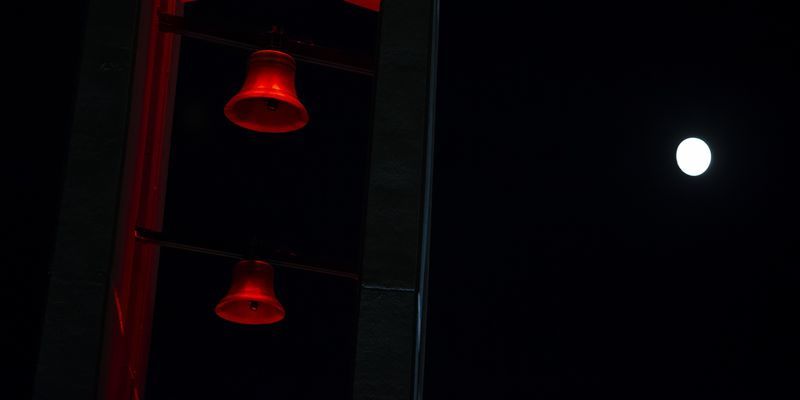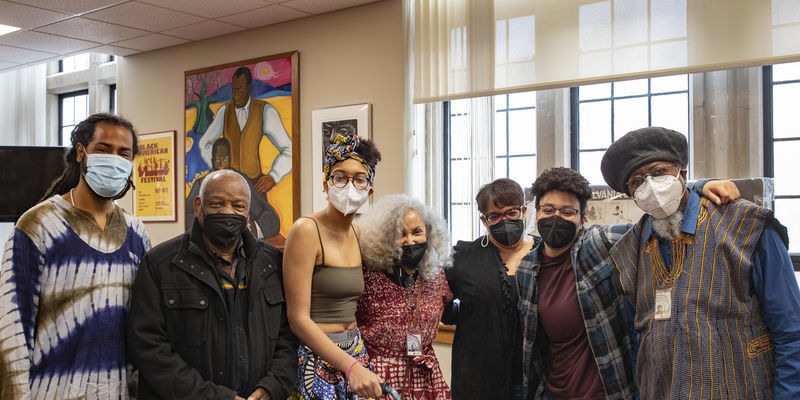Temple alumna is helping NASA advance helicopter flight on Mars
Athena Chan’s passion for space, sci-fi and engineering has landed her a position at NASA working on the next generation of Mars helicopters.

Athena Chan, ENG ’21, has quickly found a home among the leading researchers and scientists at NASA’s Ames Research Center. The 24-year-old mechanical engineer and author works on the center’s Mars Helicopter Research Team, which is responsible for developing the next generation of Mars rotorcrafts.
Before she set her sights on the world of space flight, however, Chan was drawn to Temple’s campus in North Philadelphia. “I grew up in a pretty small, rural town in New Hampshire,” Chan said. “Everybody knows everybody, so I knew I wanted to go to a city school.”
She found that Temple’s campus had the excitement of the big city, while still offering her the ability to duck away and get her work done. “I feel like you get the best of both worlds at Temple, including the diversity as well,” she said.
Temple was also the ideal place for Chan to study engineering—a passion she developed in high school. She would go on to form a keen interest in outer space during her first year at Temple. It was sci-fi shows and books, she said, like The Last Watch by J.S. Dewes, that fostered her fascination with the cosmos.
“I read Dewes’ book and I was like, ‘Wow, space is kind of cool!’ And at the same time a TV show called The Expanse came out, which is based on a series of sci-fi books,” Chan said. “It just happened to be perfect timing. I was reading all of these sci-fi books and consuming sci-fi TV shows.”
Chan’s interest in space led her to apply to an internship at NASA Ames, which she was accepted into for the fall of 2019.
“I remember when I first got onto the NASA base you could just feel the history. Ames is one of the oldest NASA bases,” Chan said. “It is home to the impressive structure of Hangar One, a former airship hangar in World War I, which covers a sprawling eight acres. It’s a quite historical and notable landmark that can be seen from much of the base.”
She spent her 2019 internship working on the Mars Helicopter Research Team and was invited back to join the team for a summer internship in 2020. Upon graduating in December of 2021, Chan was given the opportunity to return to Ames in a full-time position, once again working on the Mars Helicopter Research Team.

Athena Chan and her team conduct research at NASA's Jet Propulsion Laboratory. (Photo courtesy of Athena Chan)
Her team’s work is currently focused on designing the second generation of Mars helicopters and improving upon the progress made by Ingenuity, which Chan said was not only the first helicopter to fly on Mars, but performed the first powered flight on any planet other than Earth.
What are some challenges her team faces when tasked with engineering helicopter flight on Mars? A big one is the weather. Chan says temperatures on Mars can plummet to -200 C. Her team also has to design rotorcrafts that can survive the shock, vibration and g-forces they will experience when their carrier vessel launches and enters Mars’ atmosphere.
Chan’s recent work has focused on testing improved rotor blades for the new generation of helicopters.
“The air density on Mars is 1% of Earth’s, so flying on Mars is the equivalent of flying at 100,000 feet of altitude on Earth. Not even planes fly that high, nevermind helicopters,” she said. Because of this, Mars helicopter blades spin at a rate of approximately 3,000 rotations per minute, “which is extremely fast,” Chan said.
Her team conducts research at NASA’s Jet Propulsion Laboratory and Planetary Aeolian Laboratory, two facilities capable of simulating conditions on Mars, including temperature, pressure and air density. Their work will help power helicopters on Mars sometime in the late 2020s or early 2030s when the next Mars project launches.
Until then Chan will continue to spend time pursuing her other interest: writing. She serves as the lead writer for a serial podcast named Renegade Moon, which she says will release on Realm in 2022. Much like her pursuits at NASA, Chan’s writing deals with space, fantasy and sci-fi. Renegade Moon, she explained, is a space opera based on the Chinese legend of Chang’e, who is the goddess of the moon.
Her website contains more information about Renegade Moon and the other projects she is working on.


